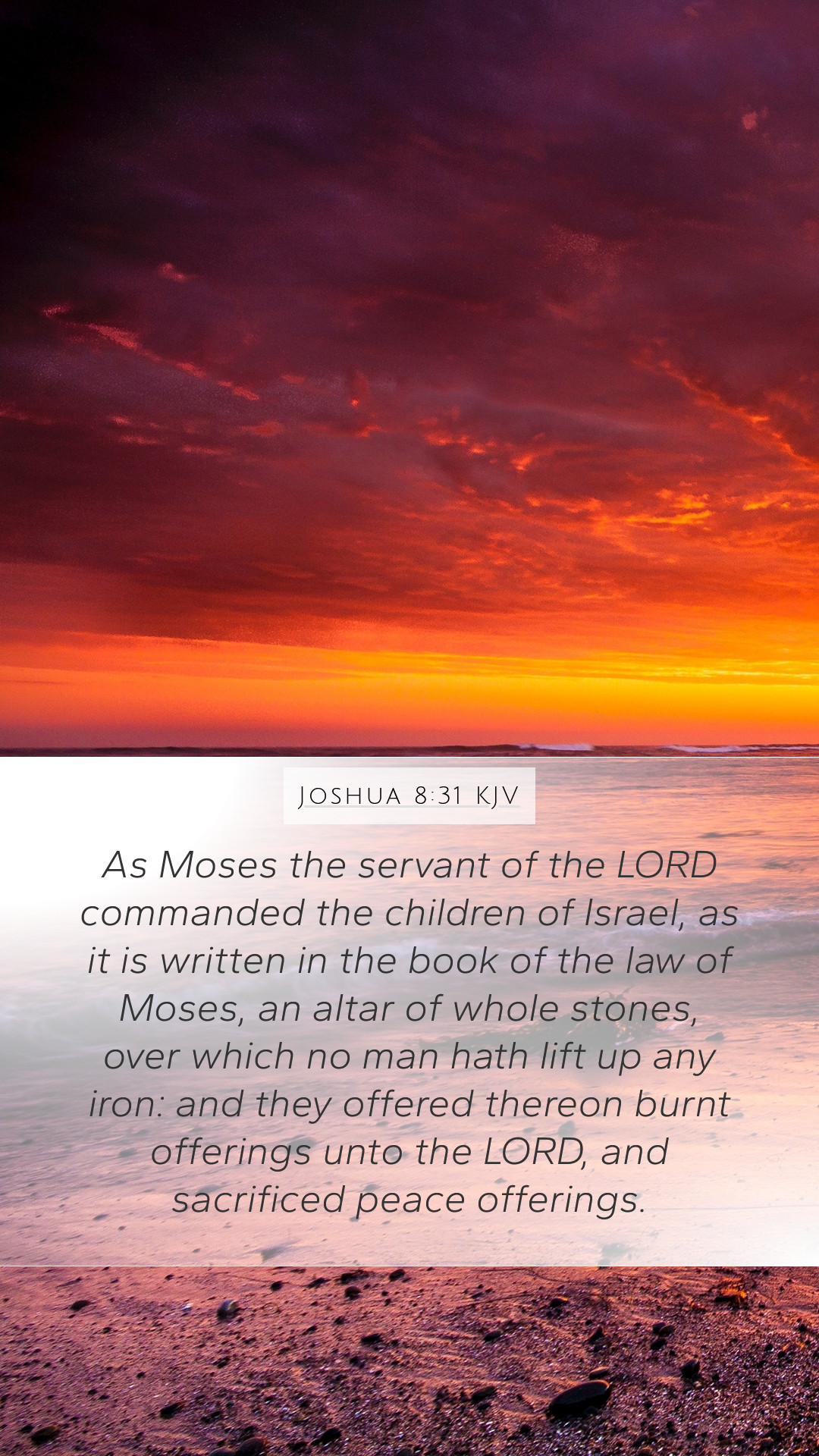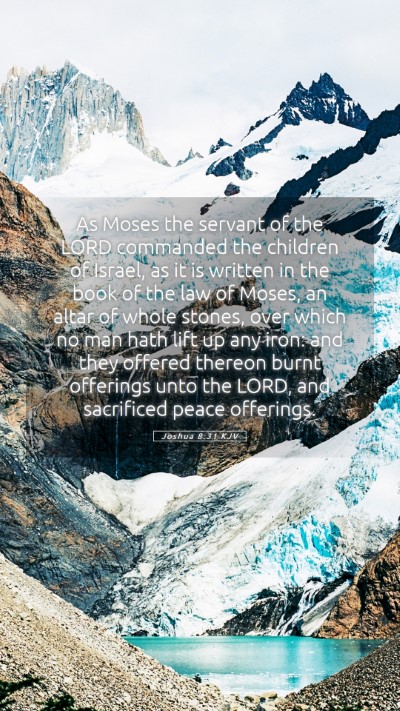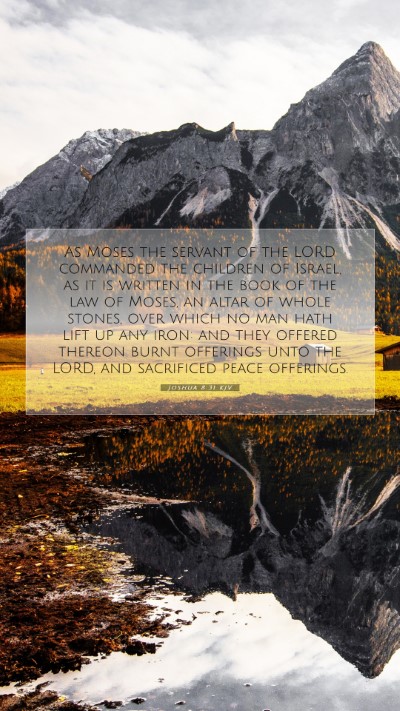Bible Verse: Joshua 8:31
Verse Text: "As Moses the servant of the Lord commanded the children of Israel, as it is written in the book of the law of Moses, an altar of whole stones, over which no man hath lift up any iron: and they offered thereon burnt offerings unto the Lord, and sacrificed peace offerings."
Bible Verse Meanings and Interpretations
This verse, situated in the broader narrative of Israel's conquest of Canaan, highlights the importance of obedience to God’s commandments as expressed through Moses. The construction of an altar and the offerings made are deeply significant both in the historical context of Israel and in the larger framework of worship in biblical theology.
Historical Context
The context of Joshua 8:31 is pivotal; it occurs after the Israelites’ conquest of the city of Ai. Following the victory, Joshua leads the people in a ceremonial observance that emphasizes their commitment to the covenant established with God. The direction to create an altar using whole stones and not employing iron tools illustrates an intention for purity and obedience to God’s law (Deuteronomy 27:5-6).
Lessons on Obedience
- Divine Command: The verse reiterates that the actions of Joshua and the Israelites are based on prior divine commands given through Moses. The obedience to God’s word is foundational for the community's relationship with Him.
- Symbolism of the Altar: The altar represents a space for atonement and worship, emphasizing the necessity of sacrificial offerings in maintaining covenantal fidelity.
- Whole Stones: The choice of unhewn stones for the altar symbolizes purity and dedication. It serves to remind the people that their worship is to be free from human manipulation.
Biblical Exegesis Insights
Exegesis of this verse uncovers several theological themes:
- Covenantal Faithfulness: The altar signifies the commitment of Israel to follow YHWH earnestly. It points to the continuity of God’s promise through generations.
- Worship Practices: The offerings—burnt and peace offerings—indicate a complete devotion to God, a return for past blessings, and a plea for ongoing divine favor.
- Community Identity: The act of building the altar together fosters a unified identity as God’s chosen people. Such acts of worship strengthen communal bonds.
Bible Study Insights
For those engaged in Bible study groups or online Bible study, Joshua 8:31 is critical in understanding how the Old Testament establishes foundational principles of worship. It underscores the necessity to align worship practices with divine instructions. Delving into this verse can enrich Bible study lessons focusing on obedience, worship, and biblical history.
Application to Daily Life
The themes found in Joshua 8:31 invite readers today to reflect upon their own practices of worship and obedience. How might one build “altars” in their own life—places or habits that foster a dedicated relationship with God? This is an opportunity for Bible study insights that transcend historical contexts, encouraging personal applications of covenant faithfulness.
Related Bible Cross References
- Deuteronomy 27:5-6: Instructions regarding the building of altars.
- Exodus 20:24: Guidelines for constructing altars.
- Joshua 8:30: Joshua's actions near Mount Ebal.
Conclusion
Joshua 8:31 serves as a significant touchstone for understanding worship in accordance with God’s commands. The insights provided by public domain commentaries emphasize that the act of building an altar is more than physical construction; it is an expression of faith, obedience, and a community's identity in covenant with God. This verse invites further biblical exegesis and can be a cornerstone of Bible study guides and Bible study resources for those seeking a deeper understanding of Scripture.


